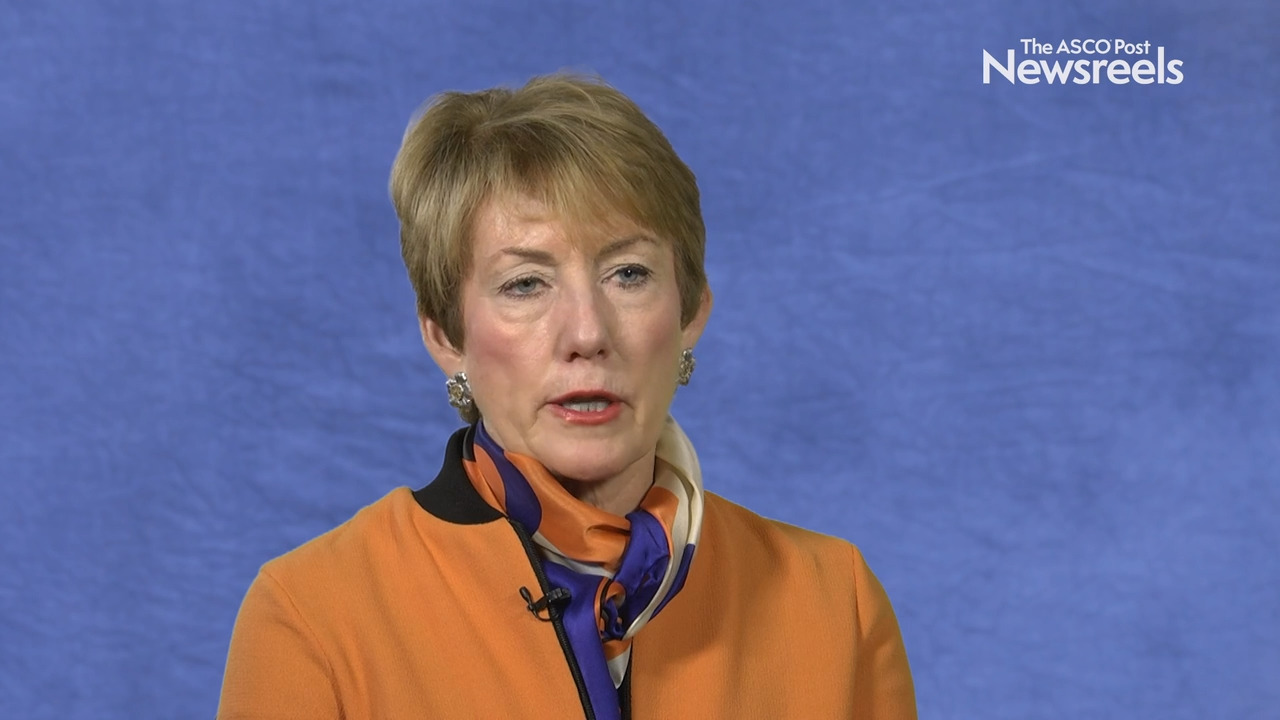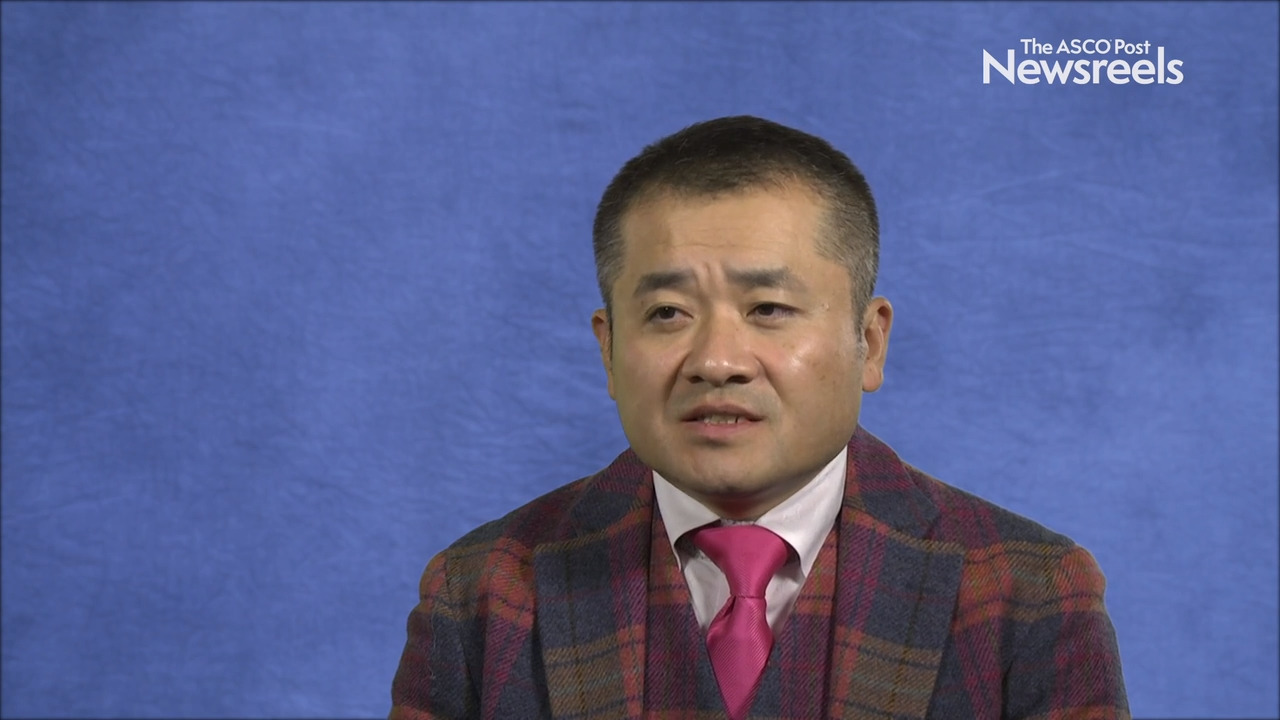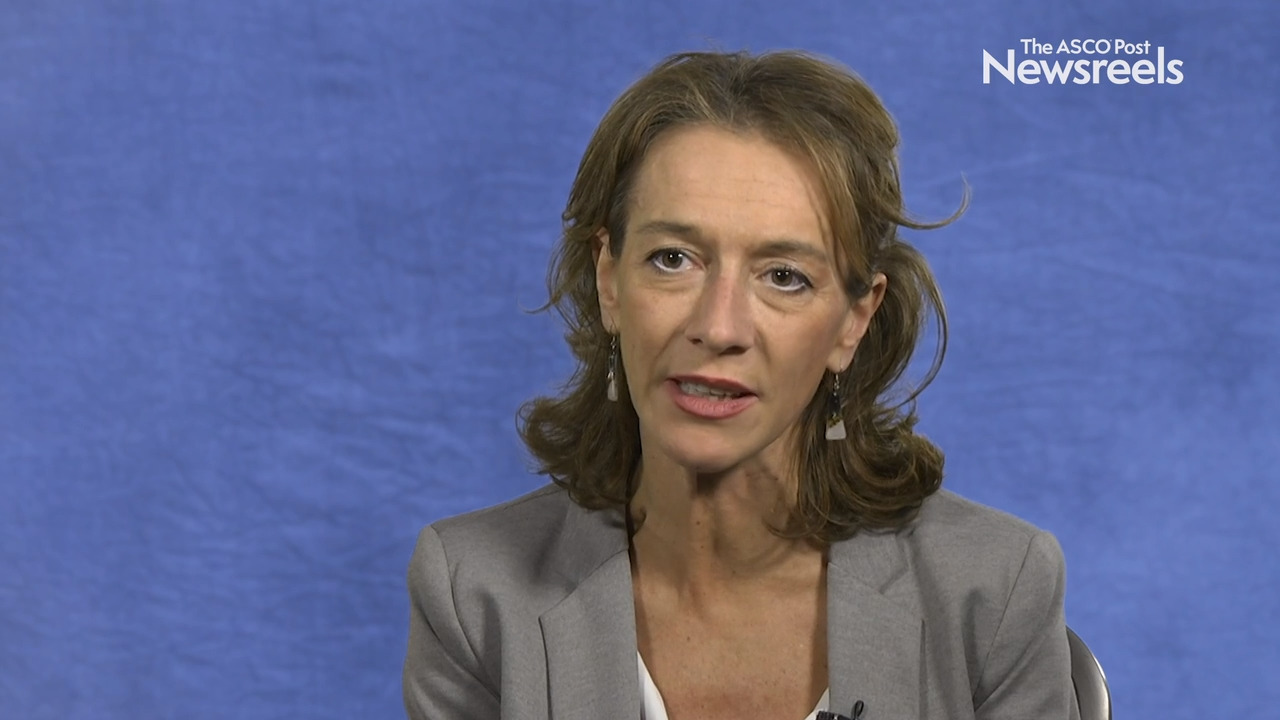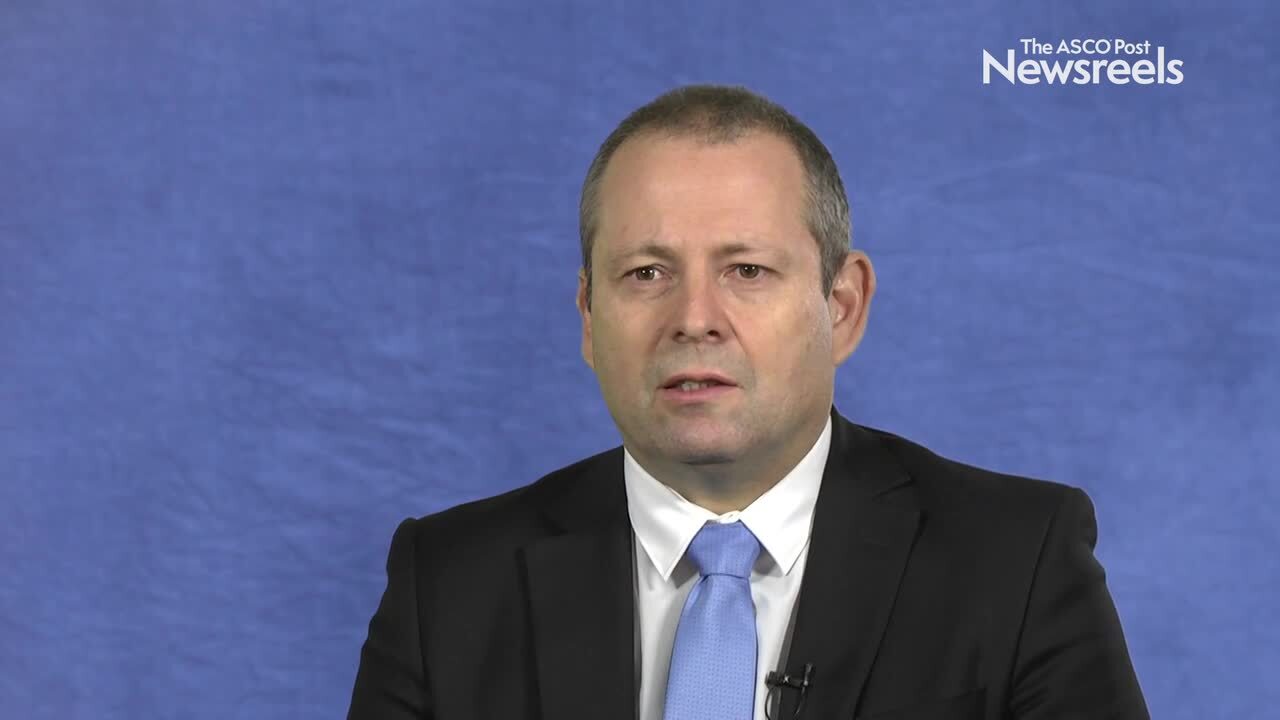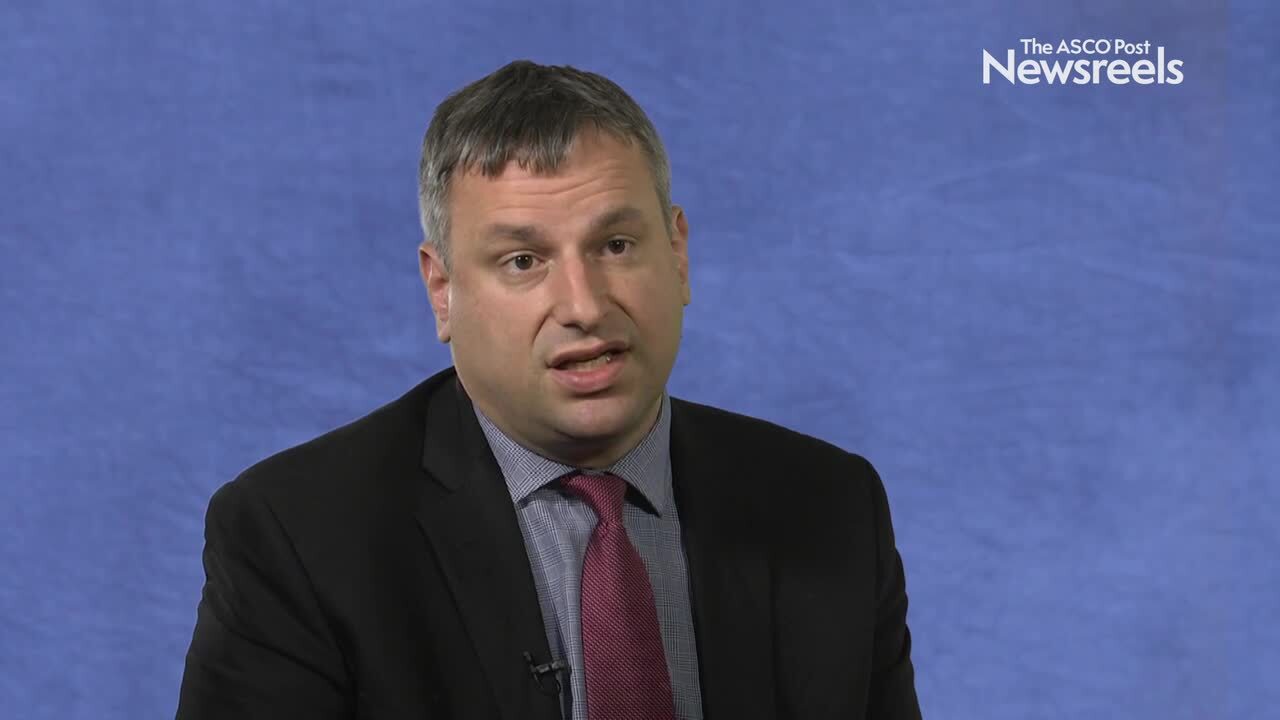Roberto A. Leon-Ferre, MD, on Decreasing Hot Flashes: Results From an ACCRU Trial
2018 San Antonio Breast Cancer Symposium
Roberto A. Leon-Ferre, MD, of the Mayo Clinic, discusses study findings on the effectiveness of oxybutynin in decreasing the frequency and severity of hot flashes (Abstract GS6-01).
Monica Morrow, MD, of Memorial Sloan Kettering Cancer Center reviews lessons learned from top abstracts, including how to tailor the extent of local therapy to minimize morbidity, the diminishing role of axillary lymph node dissection, long-term sequelae of breast surgical procedures, and the need to discuss outcomes with patients.
Shoichiro Ohtani, MD, PhD, of Hiroshima City Hiroshima Citizens Hospital, discusses study findings on extending anastrozole to 10 years, which led to higher rates of disease-free survival and distant disease–free survival (Abstract GS3-04).
Eva M. Ciruelos, MD, PhD, of the University Hospital 12 de Octubre and the SOLTI Group, discusses study findings on palbociclib and trastuzumab in postmenopausal patients with HER2-positive metastatic breast cancer (Abstract PD3-03).
Xavier Pivot, MD, PhD, of the Paul Strauss Cancer Center, discusses final study findings comparing 6 and 12 months of trastuzumab in adjuvant early breast cancer (Abstract GS2-07).
Dejan Juric, MD, of Massachusetts General Hospital, discusses phase III study findings on liquid biopsy–based assessment of PIK3CA mutational status and the combination of the selective PI3K-alpha inhibitor alpelisib plus fulvestrant in the treatment of advanced breast cancer (Abstract GS3-08).
